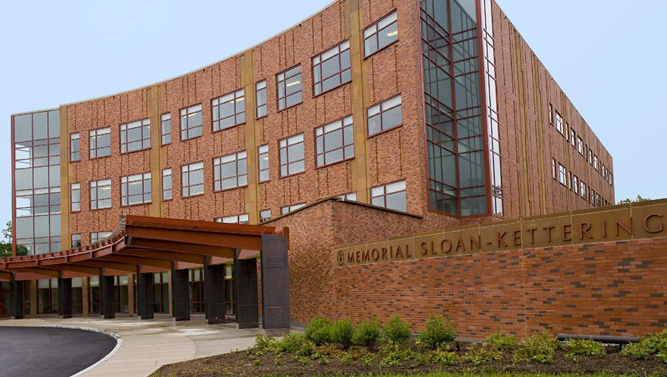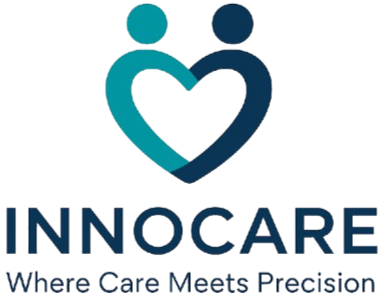
Memorial Sloan Kettering Cancer Center
Hospital Introduction:
Memorial Sloan-Kettering Cancer Center is a world-renowned private cancer center with a long history and large scale. For over 130 years, the center has been committed to excellent patient care, innovative research, and medical education programs. It is now one of the 45 comprehensive cancer centers designated by the National Cancer Institute (NCI), and has seen a vigorous development in advanced science, clinical research, and treatment.
One of the unique strengths of Memorial Sloan-Kettering Cancer Center is the close collaboration between doctors and scientists. While providing patients with the most advanced existing treatments, they also seek to discover more effective methods for preventing, controlling, and ultimately curing cancer. Our medical education programs have trained generations of future doctors and scientists, thereby helping to drive the development of cancer treatment and biomedical research worldwide.
History and Major Events
Memorial Sloan-Kettering Cancer Center was established in 1884. Its predecessor was the New York Cancer Hospital, founded by the Astor couple and others in the Upper West Side of Manhattan, New York. In 1899, it was renamed General Memorial Hospital for the Treatment of Cancer and Allied Diseases, and in 1916, the word "General" was removed, and it was renamed Memorial Hospital for the Treatment of Cancer and Allied Diseases.
*n 1936, John D. Rockefeller, Jr. donated a piece of land on York Avenue to the hospital, which is the current location of our hospital. The newly built Memorial Hospital officially opened in 1939, and the hospital building, which underwent reconstruction from 1970 to 1973, still stands today.
In the 1940s, two former executives of General Motors, Alfred P. Sloan and Charles F. Kettering, joined forces to create the Sloan Kettering Institute (SKI). Since its inception, the institute has been one of the leading biomedical research institutions in the United States. The Sloan Kettering Institute, which was officially launched in 1948, is adjacent to Memorial Hospital.
To coordinate and direct the overall policies and development of Memorial Hospital and the Sloan Kettering Institute, Memorial Sloan-Kettering Cancer Center was established in 1960. In 1980, the two institutions were officially merged and led by a single president and chief executive officer.
Over the years, Memorial Sloan-Kettering Cancer Center has been continuously expanding its outpatient facilities and services to meet the growing needs of patients, doctors, and researchers.
Patient Treatment
According to US News & World Report, Memorial Sloan-Kettering Cancer Center has consistently ranked in the top two of the best cancer hospitals in the United States for over 25 years. It is also one of the well-known children's cancer treatment hospitals in the country.
In addition, in the 2015 Best Doctors list by New York magazine, Memorial Sloan-Kettering Cancer Center had more cancer doctors listed than any other hospital in the New York metropolitan area. Memorial Sloan-Kettering Cancer Center treats patients through team collaboration. The center currently has more than ten multidisciplinary cancer treatment teams. These teams integrate the expertise and experience of experts from various fields to ensure the best possible treatment for patients. We will assemble an expert team to meet the needs of patients based on their type of disease, including surgeons, medical oncologists, radiation oncologists, radiologists, pathologists, psychiatrists, and nurses.
The doctors at Memorial Sloan-Kettering Cancer Center have extensive experience in diagnosing and treating all types of cancer, including common and rare cancers. They treat more than 400 subtypes of cancer each year. Such a high level of specialization often gives patients a greater chance of disease control or cancer cure.
Advanced Diagnostic Techniques
The radiologists at Memorial Sloan-Kettering Cancer Center are skilled in using advanced imaging techniques to detect cancer. Our pathologists are experts in accurately diagnosing cancer using advanced methods. Their extensive experience in this area is unparalleled. To determine the accurate diagnosis and disease stage of cancer, they analyze approximately 40,000 tumor samples each year. Accurate cancer diagnosis and staging are prerequisites for determining the best treatment plan.
Surgical Ex
The surgeons at Memorial Sloan-Kettering Cancer Center perform the most cancer surgeries in the United States. Focusing solely on cancer, our surgeons are skilled in using advanced surgical techniques to improve patients' quality of life. Over the years, they have pioneered many surgical innovations for treating cancer, including minimally invasive surgeries that can treat a variety of cancers.
Pioneering Radiation Therapy
The radiation oncologists at Memorial Sloan-Kettering Cancer Center are experts in developing and using radiation therapy methods and techniques. They pioneered intensity-modulated radiation therapy, which can release higher and more effective doses of radiation to the tumor site while minimizing radiation to the surrounding healthy tissues and organs.
More Effective ChemotherapThe medical oncologists at Memorial Sloan-Kettering Cancer Center lead the development of new chemotherapy drugs that are safer and more effective than standard chemotherapy drugs. They increasingly use advanced therapies such as immunotherapy or vaccines, often in combination with chemotherapy, to more effectively treat cancer.
Excellent Nursing Care
The oncology nurses at Memorial Sloan-Kettering Cancer Center are professionally trained. They work closely with doctors to provide personalized treatment, create a safe recovery environment, and care for and support patients and their families. Their expertise, experience, and skills all benefit patients. Nearly 35% of them have chosen to continue working in nursing at Memorial Sloan-Kettering Cancer Center for at least 10 years.
The nurses at Memorial Sloan-Kettering Cancer Center participate in setting standards for high-quality nursing care and making decisions related to high-quality nursing. Together with other nursing quality experts, they have pioneered a comprehensive medical care model recognized nationwide to improve nursing quality and patient outcomes.
In fact, Memorial Sloan-Kettering Cancer Center published the first comprehensive oncology nursing tutorial in 1986, setting the standards for oncology nursing and laying the foundation for the training of oncology nurses across the United States.
Supportive Care
To help patients and their families navigate the entire treatment process smoothly, Memorial Sloan-Kettering Cancer Center provides comprehensive supportive care services, including genetic counseling, rehabilitation therapy, integrative therapy, counseling services, pain management and palliative care, cancer screening, and assistance after treatment ends.
Research
Researchers at Memorial Sloan-Kettering Cancer Center have always been pioneers in developing new methods for cancer diagnosis and treatment. As one of the world's most experienced cancer research centers, the center's more than 120 research laboratories focus on gaining a deeper understanding of each type of cancer. Memorial Sloan-Kettering Cancer Center has more than 35 advanced core research facilities, providing cutting-edge research technologies and a variety of expert services for its research teams.
Our excellent patient care benefits from our innovative programs in basic research, translational research, and clinical research. In fact, from 1980 to 2012, nine drugs developed in our laboratories were approved for marketing by the US Food and Drug Administration. Such a success rate is unmatched by any other cancer center.
As the basic research institution of Memorial Sloan-Kettering Cancer Center, the Sloan Kettering Institute (SKI) is committed to gaining a deeper understanding of the biological mechanisms of cancer through eight major research programs. Researchers at the institute collaborate with physician-scientists at Memorial Hospital to accelerate the application of important laboratory research findings to clinical patient treatment.
The research projects conducted at Memorial Hospital are very extensive, covering basic laboratory research, translational research (the transformation of laboratory findings into clinical results), and mathematical and computational research (analysis and interpretation of biomedical data).
The clinical research program at Memorial Sloan-Kettering Cancer Center is also among the world's leaders. Our doctors and scientists form disease-centered research teams that translate basic scientific discoveries into advanced new therapies through research. In addition, Memorial Sloan-Kettering Cancer Center actively initiates and participates in clinical trials to identify more effective cancer therapies. As of December 2012, our doctors had led more than 1,100 pediatric and adult cancer clinical research projects.
Our researchers actively engage in both internal and external collaborations, joining laboratory researchers and clinicians from different specialties to deepen the understanding of tumor biology and explore new ways to cure, control, and prevent cancer.
Website: https://www.mskcc.org/about
-
English Name: Memorial Sloan Kettering Cancer Center
-
Abbreviation: MSK
-
Address: 1275 York Ave, New York, NY 10065
-
Official Website: https://www.mskcc.org/
